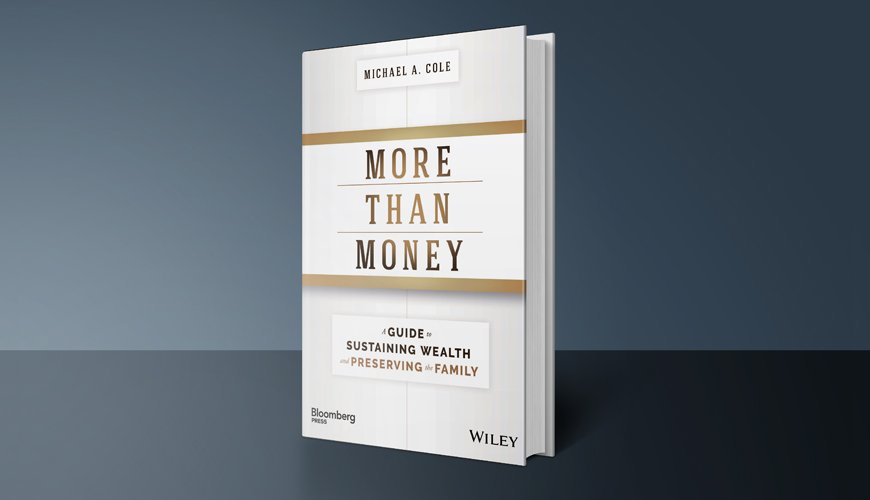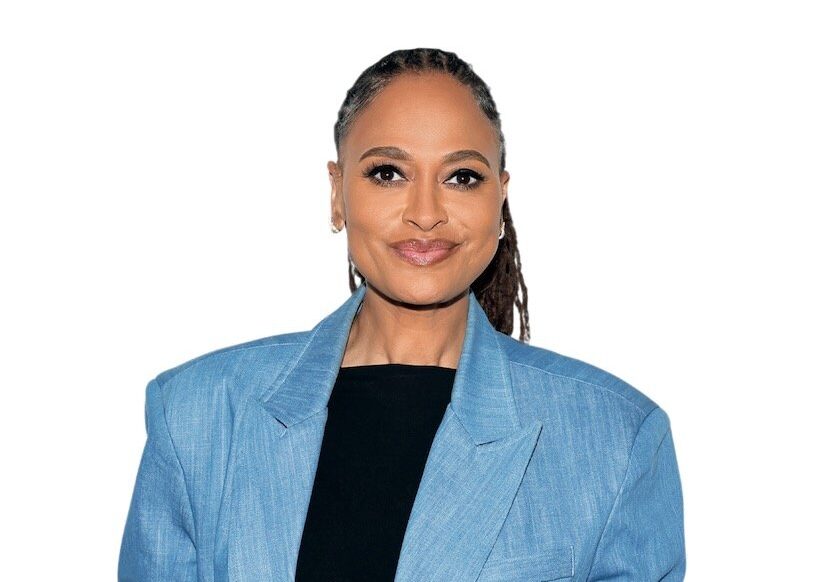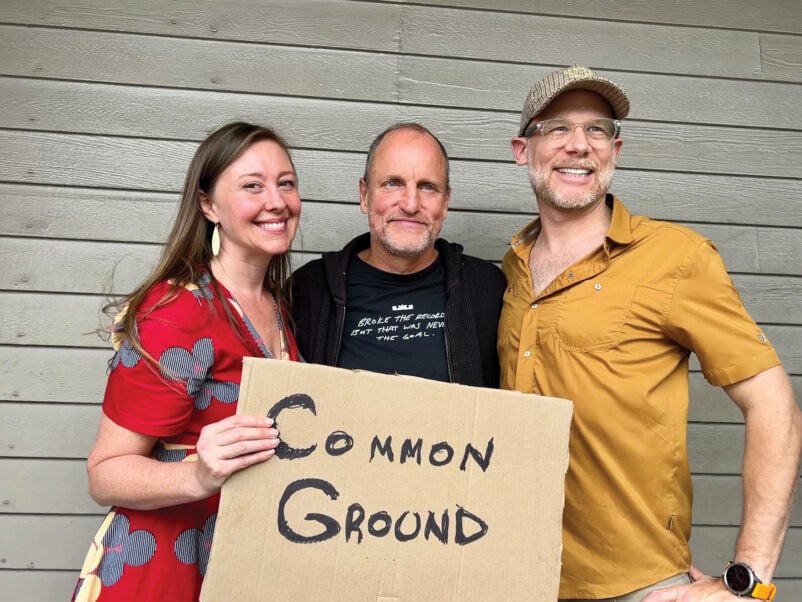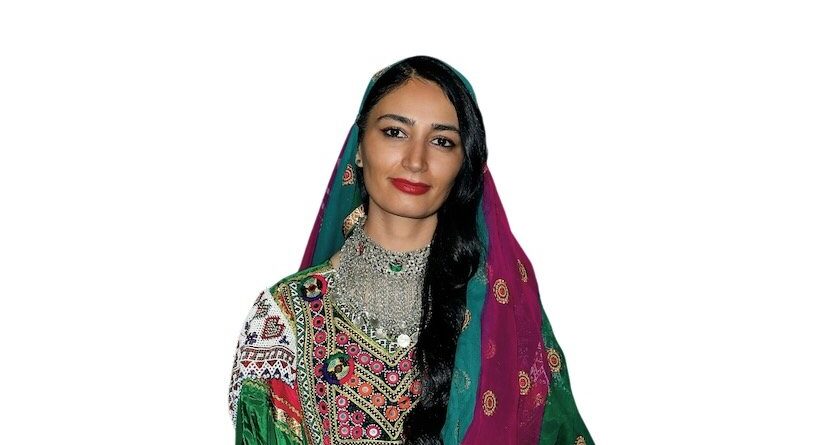Ascent Capital Management president Michael Cole argues that in order to preserve wealth over generations, families must build a rigorous culture that rests on a sense of history and mission. Worth spoke with Cole about his perspective and his new book, More Than Money—A Guide to Sustaining Wealth and Preserving the Family.
What made you decide to write the book?
This is a passion project. After the writing of the book and before it was published—weeks before it was published—I had a personal tragedy. My 16-year-old son Daniel passed away. Three and a half months later, we still don’t know what happened to him. He’d been through all sorts of tests…we just don’t know.

I’ve come to kind of a point dealing with the tragic circumstances—I’ve come to have a spirituality about it. My son was my best friend. He was incredible. He lived every day to the fullest, was never down and was always happy. He lived for the experience of life.
You wrote a very moving dedication to Daniel, saying: “Life is about so much more than money, and I would give any amount to have him back.”
When I was writing the book, he was one of my inspirations, a reminder that life is about more than money. I see too many people focus too much of their time on making money and not on the impact of wealth.
So how does that lesson translate into the advice you give to ultra high net worth families?
What I found in working with families for 30 years is that they spend an inordinate amount of time making money and then managing wealth around tactical management, private banking, tax planning—all the tactics. But what I’ve seen is the reason that families fall apart and fail is because of poor communication, lack of trust, lack of preparation [and] lack of a shared vision or mission. The strategic side that I try to talk to them about is about the implications of wealth—what money can do for families, as opposed to being a separate sort of resource unto itself. I believe that if you combine the strategic and the tactical, that is the formula for success and that is what makes wealth meaningful.

The advice that you present in the book is specific, detailed and rigorous. You make it clear that families who want to preserve wealth for generations while doing meaningful things with it are going to have to work hard to achieve that.
I follow a process that includes family history, family values, family planning, family governance…. I looked at what makes a successful business, and it’s very similar to a family of significant means. They have a leadership team, there are stakeholders that each have an interest in the family, and there tend to be employees working on behalf of the family. But unlike a business, families don’t tend to have the same rigor or strategic approach that a business does. So if you could do some of those things within a family, I believe you end up with a much better outcome.
Is that an analogy that makes sense to your clients?
Most of these families have made wealth through some entrepreneurial venture. The reason I bring that up is because when we talk to many business owners about things like family dynamics, they almost shut down immediately. “Oh, that’s the soft side, and I don’t need any of that mumbo-jumbo stuff.” But when you make it analogous to the way they run their business, that’s when you get a good reaction. They tend to see the value of it very quickly.
Are there skeptics who just don’t buy it?
This is not a fit for everybody. There are wealth creators who basically look at this and say, “You know what? I don’t care.”
In the book, you draw a distinction between what you call “wealth stewards” and “wealth proprietors.” Can you talk about what that distinction means and why it’s important?
Wealth proprietors tend to be first generation wealth owners with a myopic view of the world. They’re all about making money. That doesn’t mean they don’t do general estate planning, but they tend to have a much heavier hand in control and don’t see their hand as stewards of wealth. And for families to be successful in long-term wealth sustainability, they have to be able to give up some control, share decision making, be more open about how they communicate.
Can you tell pretty quickly if a family is going to be successful in wealth stewardship?
Very quickly. There are a number of key questions that I can ask, which are helpful. One is: How much have you shared with your family about your wealth? Talking about wealth is one of the taboo subjects, like talking about sex. The problem is when you don’t talk about it, it ends up being an event that someone is completely unprepared for.
I had a recent client who had close to $100 million and lived very humbly. He was leaving the money to his two daughters, and he didn’t share anything with them. They had no idea that he had this type of money, so they were completely unprepared for the news that they were going to be wealthy. Preparation is crucial. We’ve studied family success over five generations, and the families that endure have a culture that’s based on this type of planning—family retreats, family councils, family rules.
It’s a lot of work, but for families at this level of wealth who want wealth to be a positive experience, the work is worth it. It’s not a project, it’s not a diet, it’s a lifestyle. You have to do this over a lifetime. That doesn’t mean that it has to be burdensome or cumbersome, but there has to be a family culture.
It must be a challenge for outsiders who are becoming a part of that family.
We have a recent client who had gone through a liquidity event. He’d sold a third-generation business, a financial enterprise, for about $300 million. The guy hired us and said that his 28-year-old son was going to be one of the key inheritors and was going to get married to his longtime girlfriend in two months. He wanted us to talk to the bride about prenuptial agreements. Well, that should have been done 10 years ago and not when she’s on her way to pick up the wedding dress. She ultimately reacted badly, and the wedding plans fell through.
One of the toughest challenges for wealthy families is figuring out how and when to talk to children about money. What’s your advice?
This is a lifestyle, not a project. I had one client who told me that one day when he was young he got a $30,000 check in his mailbox, and nobody told him what it was from. Another time he saw a bank statement that had his name on it. And that’s how he found out that he had money.
Give the younger kids training that’s age specific and very simple. You want kids to understand about saving, giving and investing, the idea of beginning to understand the framework of money, and that not everybody is as fortunate as they are. As kids get into their teenage years, you want to embed in them some idea of entrepreneurship and what it took to make the family money. My experience has been that if you start a culture of preparation at an early age—and you make it fun, not too formalized—that’s the answer to success. It’s not sending a kid off to Wharton or Northwestern for a week-long program. It’s something that takes place over a lifetime.
You present a humanistic and optimistic vision of what families can do with wealth to better the world. Where did that come from?
That vision is the core of what I see as the legacy of my son. People ask me, is the book about fame, is it about fortune? And for me, it’s not about any of that. It’s about my belief that our country and our world are at critical points and that governments by themselves cannot change the direction of our planet. It takes people with passion and resources coming together and wanting to make a positive impact. That way everybody wins.
For more information visit ascent.usbank.com.











